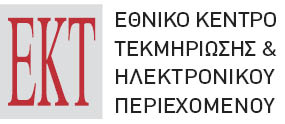Transformable architecture, in this work, refers to spatial structures augmented with computational technologies, whose common intention, in most cases, is the capacity for adaptation to changing and often non-predetermined functional factors, according to needs and desires. Seeking the existing functional capacities of such structures, limitations to implement this intention are detected, although the latter was expressed as a vision, much earlier, in the context of the discourses and practices of post-war avant-garde transformable architectural applications. Contemporary versions of those earlier proposals, the so-called “intelligent environments”, are limited to building automation and control functions as well as proactive caring, while mechanically transformable kinetic structures are characterized by predetermined flexibility. Furthermore, by looking into the cultural factors guiding the design of transformable applications, the thesis proposes the conceptualization of many of them as “marginal objects”, a concept proposed within the field of social studies of technology, which refers to practices of challenging human-machine boundaries through the construction of “living” artificial applications. It is shown that by conceptualizing transformable applications as “marginal objects”, the problem is misdirected resulting in the design of non-functional applications. In an attempt to determine conceptual and technical guidelines for the design of transformable architecture applications of non-predetermined flexibility, the thesis explores the so-called user-driven “tangible computing” systems and environments within post-cognitivist theories, such as activity theory and the theory of embodied interaction. These practices explore the potential for creative and improvisational use through the programming of distributed in space “artifacts”, according to individual preferences. Although this practice involves digital space, the physical incorporation of the system attributes multiple functional capacities to architectural space, leading to the concept of the “open potential” transformable environment. The functions of architectural space are not changed but enhanced, while the system provides the means for the deployment of possible non-conventional and unexpected functions.
Η μεταβαλλόμενη αρχιτεκτονική, όπως ορίζεται εδώ, αναφέρεται σε ενισχυμένες με τεχνολογία υπολογιστών χωρικές εφαρμογές, κοινή πρόθεση των οποίων, στις περισσότερες περιπτώσεις, είναι η προσαρμογή σε μεταβαλλόμενους και πολλές φορές μη προδιαγεγραμμένους λειτουργικούς παράγοντες, σύμφωνα με ανάγκες ή επιθυμίες. Αναζητώντας όμως τις υπαρκτές λειτουργικές της δυνατότητες, εντοπίζονται περιορισμοί στην υλοποίηση αυτής της πρόθεσης, η οποία, ωστόσο, εκφράστηκε ως όραμα, πολύ νωρίτερα, στο πλαίσιο των πρακτικών των μεταβαλλόμενων αρχιτεκτονικών εφαρμογών της μεταπολεμικής πρωτοπορίας και του σχετικού θεωρητικού λόγου. Οι πιο σύγχρονες εκδοχές / μεταμορφώσεις αυτών των προτάσεων, τα «ευφυή» περιβάλλοντα, περιορίζονται σε λειτουργίες αυτοματισμού, προνοητικής φροντίδας και κτηριακού ελέγχου ενώ οι μηχανικά μεταβαλλόμενες κινητικές εφαρμογές χαρακτηρίζονται από προδιαγεγραμμένη ευελιξία, μια προσχεδιασμένη ιδιότητα της κατασκευής. Παράλληλα, αναζητώντας τους πολιτισμικούς παράγοντες σχεδιασμού μεταβαλλόμενων εφαρμογών, η μελέτη προτείνει τη σύλληψη και κατανόηση πολλών από αυτές ως «οριακών αντικειμένων», έννοια διατυπωμένη στο πεδίο των κοινωνικών σπουδών της τεχνολογίας, που αναφέρεται σε πρακτικές πρόκλησης των ορίων ανθρώπου και μηχανής μέσω της κατασκευής «ζωντανών» τεχνητών εφαρμογών. Διαπιστώνεται ότι οι λύσεις μεταβαλλόμενων εφαρμογών ως «οριακών αντικειμένων», περισπούν το πρόβλημα κατευθύνοντας το σχεδιασμό σε μη λειτουργικές εφαρμογές. Στη προσπάθεια προσδιορισμού εννοιολογικών και τεχνικών κατευθύνσεων για το σχεδιασμό εφαρμογών μεταβαλλόμενης αρχιτεκτονικής μη-προδιαγεγραμμένης ευελιξίας, αναλύονται, στο πλαίσιο των μετα-γνωστικιστικών θεωριών δραστηριοτήτων και ενσώματης διάδρασης, τα καθοδηγούμενα από τον χρήστη ευφυή συστήματα «απτού υπολογισμού». Στο πλαίσιο αυτών των πρακτικών παρέχονται οι δυνατότητες δημιουργικής και αυτοσχεδιαστικής δράσης μέσω του προγραμματισμού κατανεμημένων στο χώρο «τεχνημάτων», σύμφωνα με ατομικές προτιμήσεις. Παρόλο που η προοπτική αυτή αφορά το ψηφιακό χώρο, η ενσωμάτωση του συστήματος στο κτισμένο προσδίδει στον αρχιτεκτονικό χώρο πολλαπλές λειτουργικές δυνατότητες, οδηγώντας στο μεταβαλλόμενο περιβάλλον «ανοιχτών δυνατοτήτων». Οι λειτουργίες του αρχιτεκτονικού χώρου εδώ δεν αλλάζουν αλλά ενισχύονται, ενώ παρέχονται τα μέσα για ενδεχόμενες μη-συμβατικές απρόσμενες λειτουργίες.
 National Documentation Centre (EKT)
National Documentation Centre (EKT)

